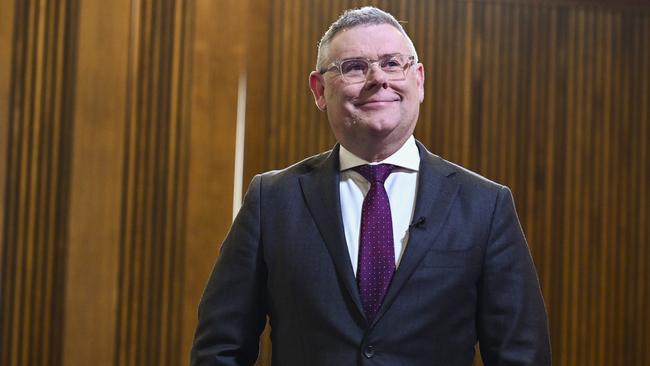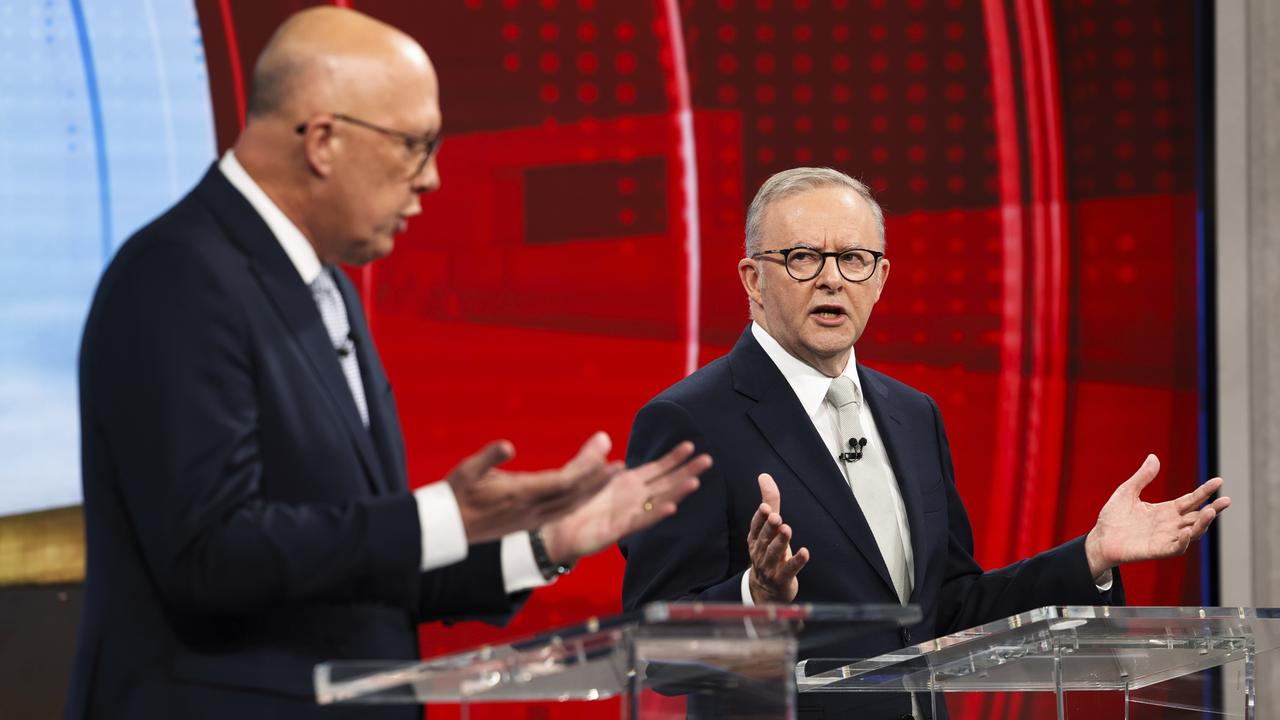
In opposition, Albanese and senior colleagues spoke of broad themes such as concerns about casualisation, increasing wages and delivering a fairer IR system, but held back union-endorsed fine print that has triggered a pre-election war with employers.
Workplace Relations Minister Murray Watt on Wednesday let the cat out of the bag after suggesting it was normal for governments to “take items to an election and then deliver extra things after they’re elected”.
Watt, who inherited an ugly brawl with business from Tony Burke, said: “You have obviously got to make a judgment about whether you think that’s within the spirit of your mandate or not … I think governments do things as situations emerge.”
Confirming what business leaders feared, Watt said Labor would take a second round of workplace changes to next year’s election and not change IR laws including multi-employer bargaining, same job, same pay and right to disconnect.
In a 2020 McKell Institute speech, Albanese said: “Labor will never allow industrial relations reform to be used as a Trojan horse to hurt working families by cutting wages and making it easier to sack people.” Employers claim the Trojan horse is now controlled by union leaders.
The most significant breach of faith for business was multi-employer bargaining. Ahead of the 2022 election, Jim Chalmers declared it was “not part of our policy”. Following the election, Labor ministers claimed the mining sector would not be impacted.
Both claims were proven false.
The 2022 ALP election review, chaired by Greg Combet and Lenda Oshalem, included a top-line recommendation that resonates today. “Respect for the trust voters have placed in Prime Minister Albanese and Labor delivering election commitments, providing stable government, and restoring decency in politics should be regarded as guiding principles of the government and as central to re-election.”
The review said if the Albanese government delivered on wages growth, the cost-of-living, housing affordability, Medicare and health, jobs and economic growth, the ALP would “achieve a lift in the primary vote”.
Albanese’s mandate to push ahead with a raft of union-inspired IR laws was built on a historically low Labor primary vote of 32.6 per cent. Opinion polls and focus groups suggest the government is failing some of its own key performance indicators. Voters will deliver their verdicts on Labor’s cost-of-living and housing affordability policies next year.
Amid minuscule economic growth, stagnant productivity, bill shock, mortgage stress and pressure exerted on the RBA to cut rates, Watt on Wednesday claimed if you “argue to cut public spending, you are arguing to go into recession”.
Watt’s comment suggests that unless the government keeps spending more taxpayers’ money, Australia will plunge into recession.
Ahead of the US Federal Reserve board meeting overnight and expectations of a first rate cut in four years, JPMorgan Chase chair and chief executive Jamie Dimon this week said cuts and hikes don’t matter “as much as people think”.
Dimon, one of the world’s most influential bankers, warned a 25 or 50 basis point cut was not going to be “earth shattering” and did not mean the country would not enter recession or have a soft landing.
“It doesn’t mean that much. It’s a minor thing when the Fed’s raising rates and lowering rates because underneath that, there’s a real economy. They don’t know what that is. It could be getting dramatically worse, it could be levelling out, inflation could get worse in three months,” Dimon said.
“People say the Fed is going to make its decision based on data. But the data is flawed and you’re operating in a little bit of a fog.”
Dimon’s economic rationale highlights the folly of Labor putting all of its eggs into a rate cut basket that miraculously shifts voter sentiment back to the government.




Anthony Albanese misled voters and businesses ahead of the 2022 election over the scale of Labor’s pact with union overlords to enshrine radical industrial relations laws.